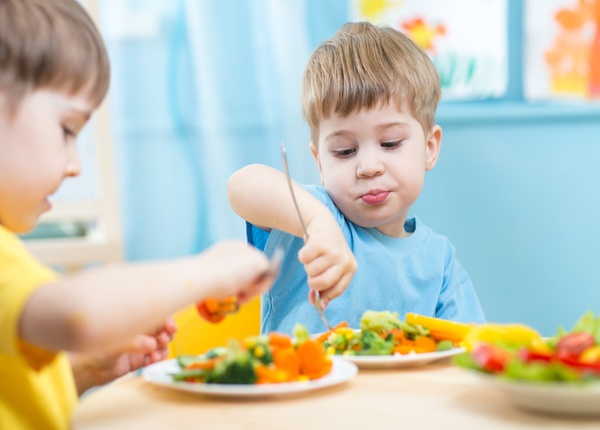
Food intake of children driven by their dislikes, more than likes, says study
- by acbconcept
Pittsburgh: Therefore, it is not surprising when people say, “Children eat what they like”. But the results of new studies by Penn State nutritionists and sensory scientists have suggested that when it comes to food, it is more accurate and more relevant to say, “Children do not eat what they don’t like.”
The research findings were published in the journal ‘Appetite’. There is an important difference, according to the main researcher Kathleen Keller, Professor Associate in the Department of Nutrition and Food Sciences, who conducted experiments involving 61 children aged 4-6 years to assess the relationship between food in food and further intake This research reveals that when served with food, it is not preferred is a stronger predictor of children eaten than to liked.
“In other words, rather than directing greater intake, our study data shows that LED children are lower to avoid some food and leave them on plates,” he said Children have a large amount of space in their stomach, so when they are handed over trays, they lean to their favorite things and usually eat it first, and then make choices about whether to eat other foods.”
Study of John Hayes’ Partners, Professor of Science and Director of the Center for Sensory Evaluation at the College of Agricultural Sciences, said in other ways For 50 years plus, we already know and intake of positive correlation, but this often leads to the wrong assumption that if it feels better, you will eat more,” he said “Reality is a little more nuanced. In adults, we know that if you really like food, you might or maybe not eat it. But if you don’t like it, you rarely or never eat it.
This new data shows the same pattern applies to young people Children participated in two identical laboratory sessions in this study were carried out in the Laboratory of Keller’s children’s eating behavior at the College of Health and Humans, where seven foods – chicken nuggets, soy sauce, potato chips, wine, tomatoes and pastries – is included on the tray. Also includes two drinks, fruit blows and milk.
Before eating, children were asked to assess their favorite of each food on the following five points – very bad, bad, maybe good, good and very good After children eat as much food as they want, the researchers burden what they eat and compare results with what children they like and are not liked. His correlation is striking In this study, the researchers reported that the relationship between liking and intake was not strong for most of the food For example, it only likes potato chips, wine, cherry tomatoes and fruits positively related to the amount consumed.
But no associations found between liking and intake of other eating goods. However, there is a strong correlation between consumption – or non-consumption in this case – and the foods that their children say do not like At multi-component meals, rather than eating what they like, this data is more consistent with the idea that children don’t eat what they don’t like, the researchers concluded.
Even at a young age, the choice of children’s food is influenced by their parents and friends, Keller shows. So, people need to be careful assuming about what really encourages their behavior when they sit down to eat They took what was said around the table about what food was good, and while it might not really fit the children eat it, they took everything, and it affected their food perception,” he said “Milk is a good example of it – for some families, there may be hello health effects around milk. Children learn from early age that drinking milk will give them a strong body, so they might drink milk even if it’s not a favorite drink Of course. “
As children in the United States continue to consume people
Pittsburgh: Therefore, it is not surprising when people say, “Children eat what they like”. But the results of new studies by Penn State nutritionists and sensory scientists have suggested that when it comes to food, it is more accurate and more relevant to say, “Children do not eat what they don’t like.” The research findings…
